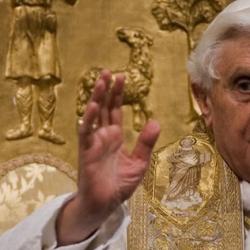In his 2005 Christmas encyclical, Deus caritas est, Benedict XVI explains why love has to be understood as both eros and agape , as ascending and descending love. He notes early on that the Bible rarely uses the word eros , arguing that “the tendency to avoid the word eros , together with the new vision of love expressed through the word agape, clearly point to something new and distinct about the Christian understanding of love.” As he notes, “these... Read more




















